CppCon 2023 C++ Memory Model: from C++11 to C++23 -- Alex Dathskovsky
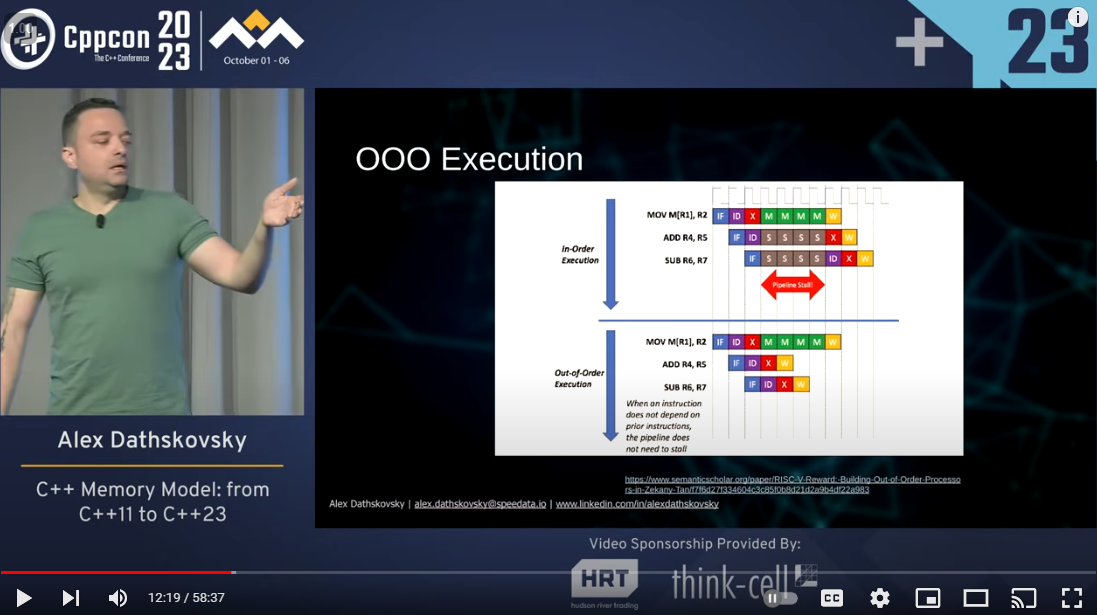 Registration is now open for CppCon 2024! The conference starts on September 15 and will be held in person in Aurora, CO. To whet your appetite for this year’s conference, we’re posting videos of some of the top-rated talks from last year's conference. Here’s another CppCon talk video we hope you will enjoy – and why not register today for CppCon 2024!
Registration is now open for CppCon 2024! The conference starts on September 15 and will be held in person in Aurora, CO. To whet your appetite for this year’s conference, we’re posting videos of some of the top-rated talks from last year's conference. Here’s another CppCon talk video we hope you will enjoy – and why not register today for CppCon 2024!
C++ Memory Model: from C++11 to C++23
by Alex Dathskovsky
Summary of the talk:
In the realm of C++ development, threading and memory management play a crucial role in crafting highly parallel and optimized programs. However, the absence of a memory model in C++98 posed challenges. Thankfully, with the advent of C++11, significant changes were introduced, including the introduction of a memory model, which brought forth a plethora of new and exciting tools for developers to leverage. This talk aims to delve into the realm of the C++ memory model, showcasing the arsenal of tools at our disposal. Attendees will gain insights into how CPUs and compilers optimize code and understand the criticality of adhering to the memory model correctly. Practical guidelines on utilizing these tools effectively will also be explored.
Throughout the talk, we will illustrate practical examples and share best practices for utilizing the diverse set of tools now available to us. From atomic operations to memory barriers, we will explore the range of techniques that allow us to develop robust and thread-safe code.
This talk will also illustrate the newer tools from newer C++ standards like JThread and so this talk will show how memory model is used and how it advanced since C++11.

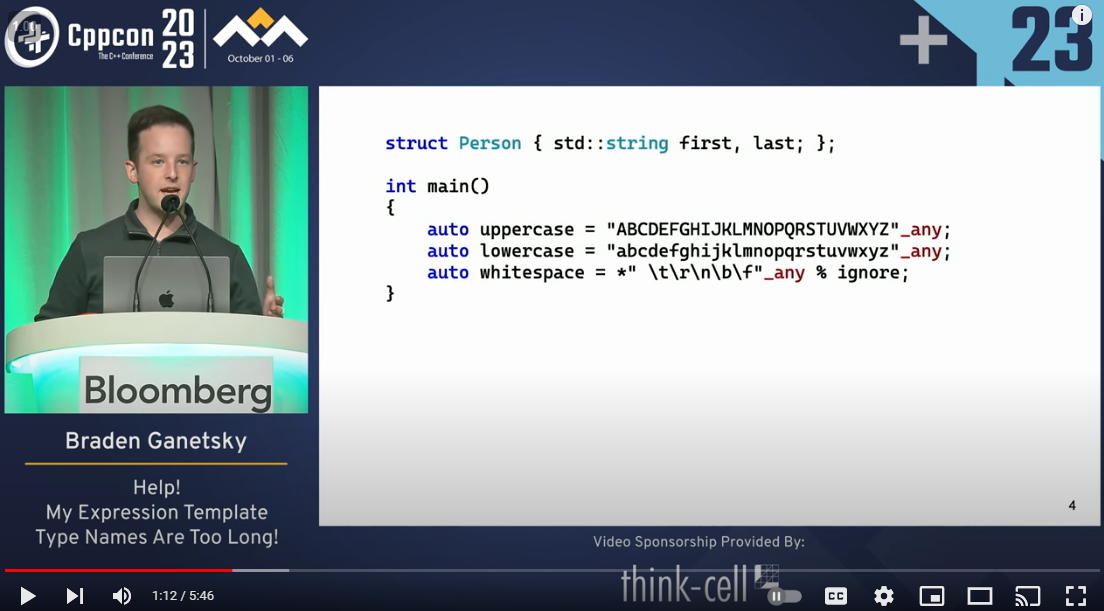 Registration is now open for CppCon 2024! The conference starts on September 15 and will be held
Registration is now open for CppCon 2024! The conference starts on September 15 and will be held 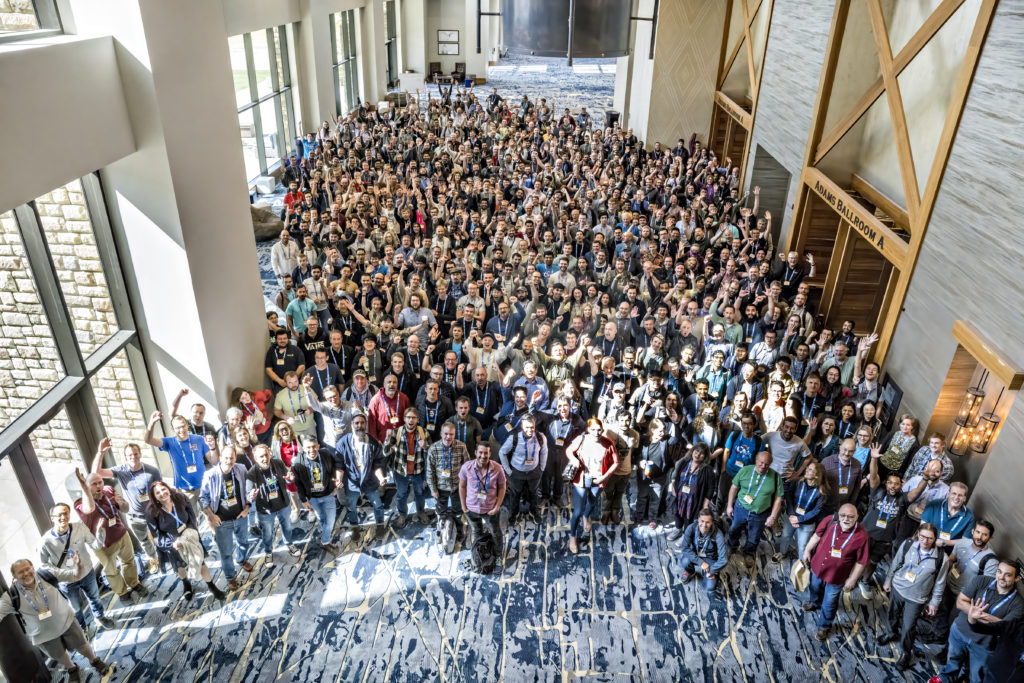 The opening keynote of
The opening keynote of  Some time ago, I wrote about how
Some time ago, I wrote about how 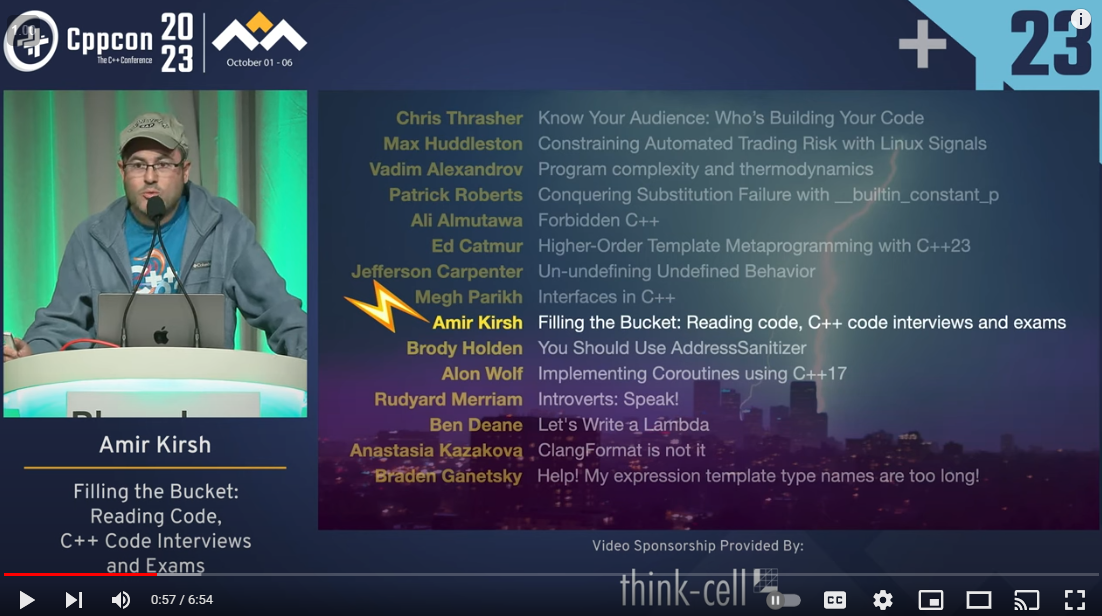 Registration is now open for CppCon 2024! The conference starts on September 15 and will be held
Registration is now open for CppCon 2024! The conference starts on September 15 and will be held 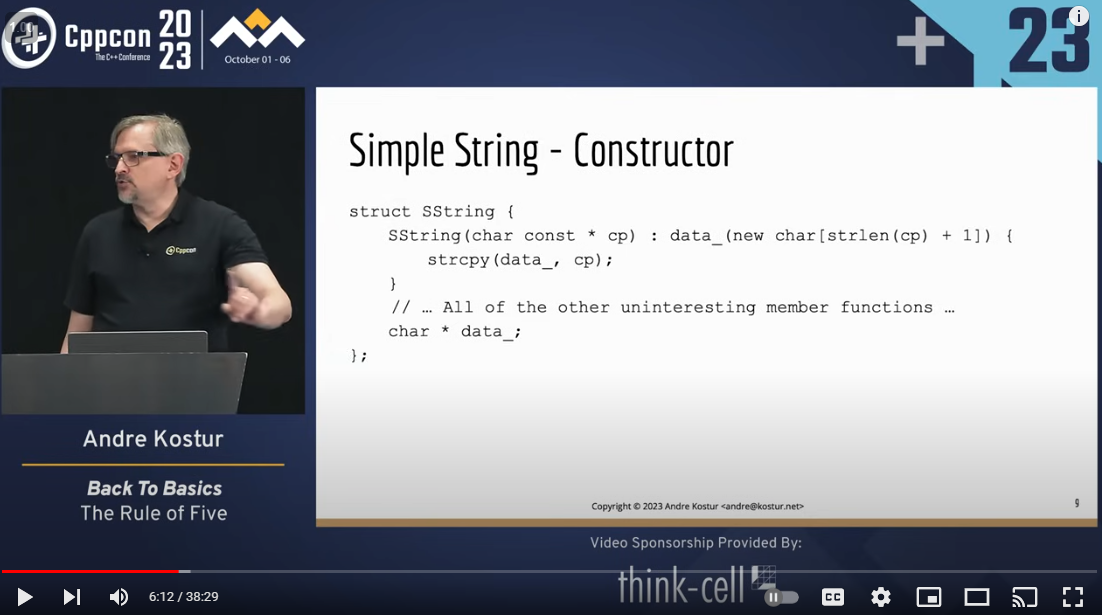 Registration is now open for CppCon 2024! The conference starts on September 15 and will be held
Registration is now open for CppCon 2024! The conference starts on September 15 and will be held 
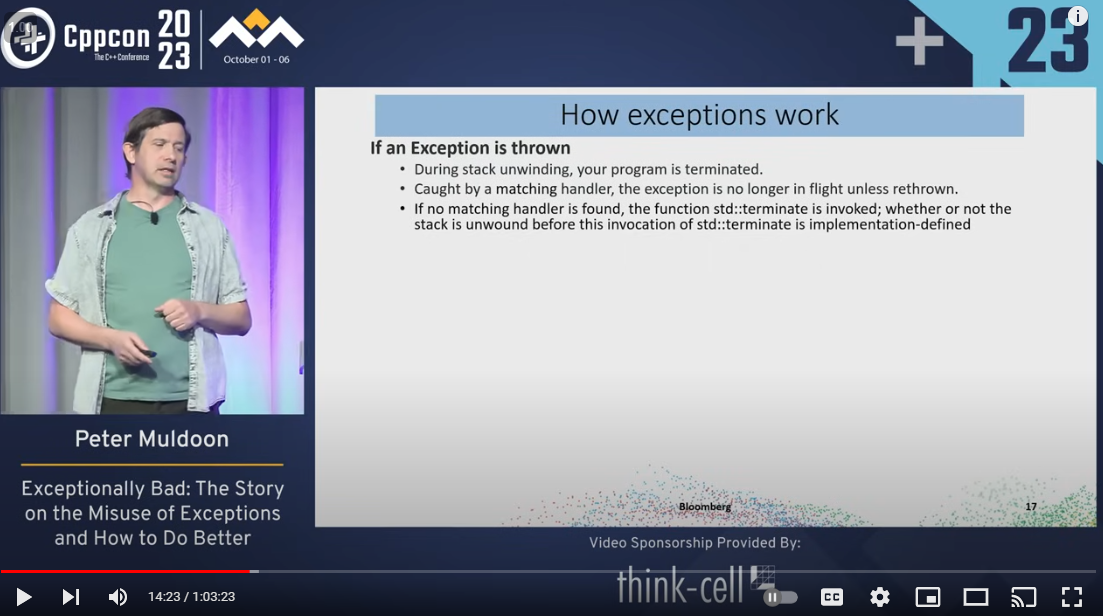 Registration is now open for CppCon 2024! The conference starts on September 15 and will be held
Registration is now open for CppCon 2024! The conference starts on September 15 and will be held